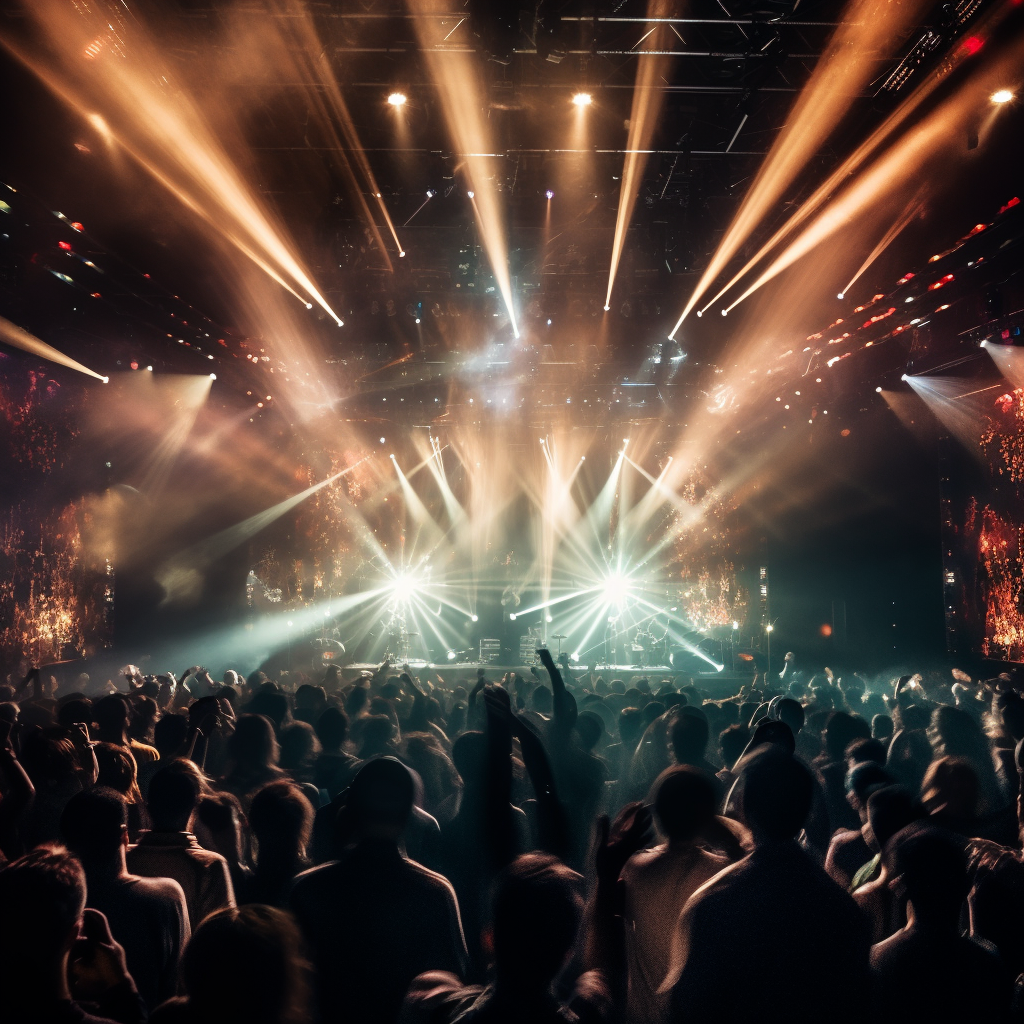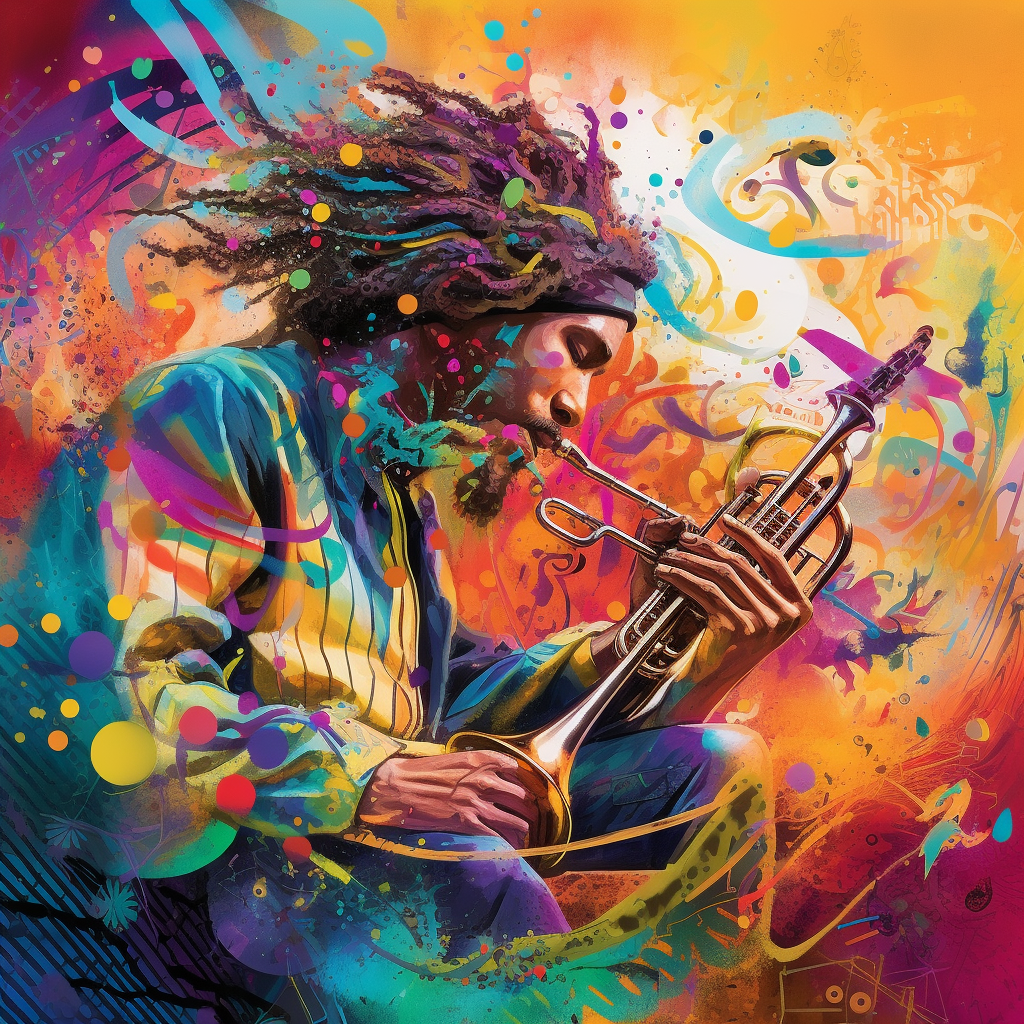🎵 The Great Symphony of AI & Web3: How the Music Industry Will Dance to a New Tune 🎤

The music industry has always been a cauldron of creativity, with artists, songwriters, and producers pushing the boundaries of what's possible. But beneath the surface, there's a lot of friction: power imbalances, outdated systems, and middlemen that make it hard for artists to truly thrive.
But now, with the advent of artificial intelligence (AI) and web3 technologies, we're on the cusp of a seismic shift that promises to disrupt the music industry in the most incredible ways.
In this article, we'll explore how AI and web3 are set to reshape the music industry, the benefits to artists, reasons why some industry incumbents wouldn't want this disruption, and our thoughts on an eventual outcome. 🎉🌈

🎸 Benefits to Artists: A Brave New World of Opportunities 🎹
1. Fair Revenue Distribution: Web3, with its decentralized technologies like blockchain and smart contracts, enables a more equitable distribution of revenue. Artists can now receive their fair share directly from fans, bypassing traditional intermediaries like record labels and streaming platforms.
2. Creative Control: In the web3 era, artists can retain full ownership of their intellectual property. This means they'll have more control over their music, its licensing, and its use in various media formats.
3. Global Reach: With web3's borderless nature, artists can connect with fans from every corner of the globe. This not only helps them build a diverse fanbase but also enables new avenues for revenue generation through merchandise sales, virtual concerts, and more.
4. AI-Assisted Creativity: AI can help artists explore new creative frontiers by assisting in songwriting, music production, and even visual design. This collaboration between humans and machines can result in more innovative and captivating music.
5. Personalized Fan Experiences: AI and web3 technologies enable the creation of highly personalized experiences for fans. From AI-curated playlists to virtual reality concerts, these immersive experiences can strengthen the connection between artists and their fans.

🐉 The Old Guard: Why Industry Incumbents Might Resist Change 🐲
The benefits of AI and web3 are clear, but some industry incumbents might be reluctant to embrace this new paradigm. Why?
1. Loss of Control: Traditional music industry players like record labels and streaming platforms have long held a significant amount of power. Web3 threatens to upend this power dynamic, putting control back in the hands of the artists. Naturally, some incumbents might be unwilling to relinquish this control.
2. Reduced Profits: The decentralized nature of web3 enables artists to bypass traditional intermediaries, resulting in a more direct flow of revenue. This could lead to reduced profits for industry incumbents as they struggle to adapt to the new landscape.
3. Infrastructure Overhaul: Adopting web3 and AI technologies requires a significant overhaul of the existing infrastructure, which can be costly and time-consuming. Some incumbents might be hesitant to invest in these new technologies, fearing the unknown.
4. Legal & Regulatory Challenges: The integration of AI and web3 in the music industry could lead to various legal and regulatory challenges. For instance, there could be questions about copyright ownership when AI-generated music is involved, or concerns about data privacy on decentralized platforms. Industry incumbents might resist change due to these uncertainties.
5. Resistance to Change: Some industry players might simply be resistant to change, either because they're entrenched in their ways or because they don't fully understand the potential benefits of AI and web3. This inertia could slow down the adoption of these technologies in the music industry.

🔮 Gazing into the Crystal Ball: What's the Eventual Outcome? 🌐
Despite the resistance from some industry incumbents, the transformational power of AI and web3 is undeniable. So, what can we expect from the future of the music industry?
1. A Tidal Wave of Disruption: As AI and web3 technologies mature, their impact on the music industry will become more pronounced. Traditional players who refuse to adapt will be swept away by the tide, making way for innovative startups and artist-driven platforms.
2. Collaboration Over Competition: In this new landscape, collaboration will be the key to success. Artists, fans, tech companies, and industry players will need to work together to develop new business models, experiences, and technologies that cater to the evolving demands of the global audience.
3. Experimentation & Innovation: With the combination of AI and web3, the music industry will become a hotbed of experimentation and innovation. Expect to see groundbreaking new genres, formats, and experiences that will redefine the way we create, consume, and connect with music.
4. Empowered Artists & Fans: In the long run, the adoption of AI and web3 will usher in an era of empowered artists and fans. With more control over their music and finances, artists will be free to explore their creative potential without being stifled by traditional gatekeepers. Fans, on the other hand, will have more ways to engage with their favorite artists and discover new music that resonates with them.
5. A Sustainable Ecosystem: The new music industry will be built on a foundation of fairness, transparency, and sustainability. As a result, artists will be better equipped to make a living from their craft, and the industry as a whole will flourish.
In conclusion, AI and web3 are poised to radically transform the music industry, unlocking a world of benefits for artists and fans alike. While some industry incumbents may resist this change, the tide of innovation is unstoppable. The future of music will be shaped by those who embrace the potential of these cutting-edge technologies and collaborate to build a vibrant, sustainable ecosystem. 🎵🎵

